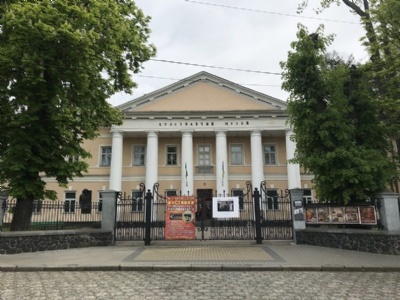Rivne
Between 1941 and 1944 Rivne was the capital of Reich Commissariat Ukraine. The leader of the Commissariat was Erich Koch, one of Hitler’s old friends and with a long and solid history as a political administrative leader both before and during the war. As the supreme political leader of the Reich Commissariat, Koch was only subordinate to Hitler and thus had a large power base at his disposal that not even the army and the SS could interfer with. As the Reich Commissar of Ukraine, Koch had the responsibility to nazify the area in line with Nazi ideology. He thus also bore the ultimate responsibility for the crimes and deeds that the Germans committed in the Reich Commissariat. In Rivne, Koch had his office set up in Rivne’s regional (historical) museum. In connection with the museum, he also built a protective bunker in the event of an airstrike.
The Commissariat in Ukraine was one of two Reich Commissariat established, the other was Reich Commissariat Ostland. Two more Commissariat, Moscow and Caucasus, were planned, but these were never materialized. Both Commissariat were placed under a civil administration and were the top civilian leadership in the area. The origin of the Commissariat dates back to the summer of 1941 when Hitler wanted to put the newly occupied territories in the east under civilian administration. Ukraine was not only made up of parts of Ukraine, but also covered areas in present Belarus and Poland. In line with German military successes, the area grew and at its peak it covered just over 130,000 square kilometers and about 17 million inhabitants. The occupied territories not under civilian control were under military control.
Current status: Preserved with information tablet (2019).
Location: 50°36'54.05"N 26°14'47.73"E
Get there: Walk from central Rivne.
Follow up in books: Arad, Yitzhak: Holocaust in the Soviet union (2009).


The museum exists and just outside the museum there is a bunker, and surprisingly part of Rivne’s cultural heritage. There is a small information tablet on the bunker. It seems that the bunker’s interior is preserved.